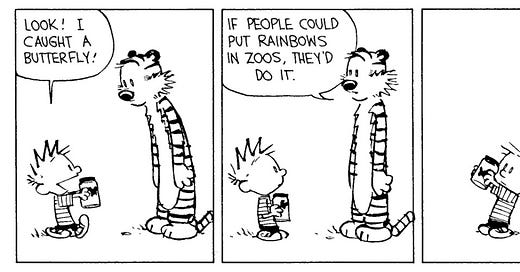POP CULTURE SPIRIT WOW
When I was in graduate school I took a class called the Myth of America. We read works of American literature from the Puritan times all the way to the 20th century, tracing the underlying stories we told ourselves about our country and ourselves. Mostly what I remember was the lectures were like these little religious experiences in and of themselves. We sat huddled in a small classroom scribbling as fast as we could as our professor just let fly with a thousand interesting ideas.
Honestly I don't know what to do with America right now. And it helps to step back away from the smouldering ruins of the last few weeks and think about what we're seeing in a more anthropological way. In fact there are multiple myths of America operative among us, and we are in a time when they are in conflict in a very visible and visceral way.
So what are our myths?
I'm not an anthropologist, but here's one thought:
America as Destiny vs. America as a Crime
The idea of America as a destiny has been present from the very beginning, when the Puritans fled/were banished here and decided to spin their catastrophe as not punishment at all but a gift from God. And with that idea of America as destiny comes so many significant American ideas: America as a place of freedom and rights, exploration, opportunity, divine blessing.
The idea of America as a crime is not something you would have heard at the beginning of the country from the Europeans, but it was certainly the foundation for others. The achievements of America have pretty much always been built on sin: the genocide of Native peoples; the kidnapping and enslavement of African peoples; the mistreatment of the working class and children; the internment of Asian peoples; the oppression or erasure of women, etc. etc.
Here's the interesting thing: while the first myth is nation affirming, the kind of thing we hear sung about in all our anthems, the more we've focused on the people forgotten or mistreated by America, the richer and deeper our country has become. A very tiny case in point: Hidden Figures, the 2016 film about the Black female mathematicians who were integral to the success of the Apollo space program. You watch that film and see the ways those women were treated at times and forgotten, and it's appalling. But in confronting that history, their stories are finally allowed to become a part of the narrative of America. It's like we've finally tapped into a wellspring that's been waiting for us.
It's a very Christian dynamic, actually—the confrontation with one's sins or crimes is the necessary pathway to liberation and a better life for everyone.
But it's also very threatening, which is how you get to the point where Texas would seriously consider textbooks that refer to slavery only as "involuntary relocation." Let us have our American dream!
I think it's also where you some of the layers of justification for things like "Don’t Say Gay" in Florida. Destiny has a particular form; things that "betray" that vision, like gay relationships or immigrants, have to be excised. (Of course those very groups might point to America as destiny as the basis for their own desires and rights.)
I have no idea what to do with America right now. I can’t tolerate hooplah or national anthems. They all seem like propaganda trying to hide the reality of our country. But I do long for the kind of spaciousness that Katherine Lee Bates imagined for the nation in "America, the Beautiful,” room for uncomfortable, life-changing truths.



